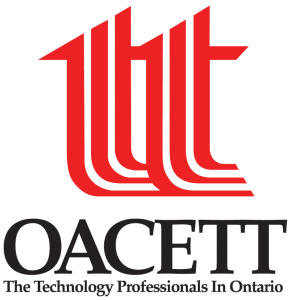
An engineering technologist is a professional trained in certain aspects of development and implementation of a respective area of technology. Engineering technology education is even more applied and less theoretical than engineering education, though in a broad sense both have a focus on practical application. Engineering technologists often assist engineers but after years of experience, they can also become engineers. Like engineers, areas where engineering technologists can work include product design, fabrication and testing. Also as with engineers, engineering technologists sometimes rise to senior management positions in industry or become entrepreneurs.
The Association of Certified Engineering Technicians and Technologists of Prince Edward Island (ACETTPEI) is Prince Edward Island's independent certifying body for engineering/applied science technicians and technologists.
The Sydney Accord is an international mutual recognition agreement for qualifications in the fields of engineering technology.
Certified Engineering Technologist is a Canadian professional title awarded on the basis of academic qualification and work experience. Abbreviated as C.E.T., most Canadian provincial engineering and applied science technology associations offer this certification. Certification is voluntary and does not represent a provincial regulatory requirement or a statutory required license.
A Professional Technologist is a class of certification of Engineering Technologist and Professional Technologist in Canada and Malaysia respectively.

The Ontario Association of Certified Engineering Technicians and Technologists, or OACETT, is a not-for-profit, self-governing organization in Ontario, Canada. It is a professional association that promotes the interests of engineering and applied science technicians and technologists to industry, educational institutions, government and with the public. It currently has 24,000+ members.
Applied Science Technologist is a Canadian professional title awarded on the basis of academic qualification and work experience. Abbreviated as A.Sc.T., some, but not all, Canadian provincial engineering and applied science technology associations offer this certification.
Island Technology Professionals is Prince Edward Island's independent certifying body for engineering/applied science technicians and technologists. It is an official trade name of the Association of Certified Engineering Technicians and Technologists of Prince Edward Island.

The Certified Technicians and Technologists Association of Manitoba (CTTAM) is Manitoba's independent certifying body for engineering/applied science technicians and technologists.
The Saskatchewan Applied Science Technologists & Technicians (SASTT) is Saskatchewan's independent certifying body for engineering/applied science technicians and technologists.
The Society of Certified Engineering Technicians and Technologists of Nova Scotia, also called TechNova Certified Technology Professionals, is Nova Scotia's independent certifying body for engineering/applied science technicians and technologists.
In Canada, a Registered Engineering Technologist (R.E.T.) is a category of membership of the Association of Science and Engineering Technology Professionals of Alberta (ASET). This designation is only used in the province of Alberta. No new Registered Engineering Technologist (R.E.T.) designations have been issued in Alberta since October 2009, following proclamation of the new provincial Engineering, Geological and Geophysical Professions Amendment Act. Existing R.E.T.'s in Alberta are not grandfathered into Alberta's newer P.Tech designation, as the certification criteria for a P.Tech. designation is different from the older R.E.T. designation. The R.E.T. designation in Alberta is being phased out over time. Existing R.E.T.'s may retain their title to the conclusion of their careers. However, no new R.E.T. applications are being accepted. One of the reasons that the R.E.T. designation being phased out is that it is only recognized in Alberta and is not transferable to any other province.
Certified Technician is a Canadian professional title awarded on the basis of academic qualification and work experience. Abbreviated as C.Tech., most Canadian provincial engineering and applied science technology associations offer this certification. They are closely related to a Certified Engineering Technologist and share the same professional association.
The IntET(Canada) designation is a professional title awarded on the basis of academic qualification and work experience. It is a certification recognized over provincial borders and over some national borders. The Canadian Council of Technicians and Technologists offers this certification.
In Canada, a new occupational category of "technologist" was established in the 1960s in conjunction with an emerging system of community colleges and technical institutes. It was designed to effectively bridge the gap between the increasingly theoretical nature of engineering science degrees and the predominantly practical approach of technician and trades programs. Provincial associations may certify individuals as a Professional Technologist (P.Tech), Certified Engineering Technologist (C.E.T.), Registered Engineering Technologist (R.E.T.), Applied Science Technologist (AScT) or Technologue Professionel [T.P.]. These provincial associations are constituent members of the Canadian Council of Technicians and Technologists (CCTT), which nationally accredits technology programs across Canada through its Canadian Technology Accreditation Board (CTAB). Nationally accredited engineering technology programs range from two to three years in length, depending on province, with two-year programs leading to a C.Tech. certification and three-year programs usually leading to an AScT, CET or RET certification.
The Association of Engineering Technicians and Technologists of Newfoundland and Labrador (AETTNL) is Newfoundland and Labrador's independent certifying body for engineering/applied science technicians and technologists.
The Applied Science Technologists and Technicians of British Columbia (ASTTBC), is British Columbia's independent certifying body for engineering/applied science technicians and technologists.
The Ordre des technologues professionnels du Québec is Quebec's independent certifying body for engineering/applied science technicians and technologists.
Technology Professionals Canada (TPC) is an organization in Regina, Saskatchewan, Canada, that advocates for the profession of technicians and technologists within the provinces of their member organizations.
The New Brunswick Society of Certified Engineering Technicians and Technologists or NBSCETT is New Brunswick's independent certifying body for engineering/applied science technicians and technologists. NBSCETT was established in 1968. It confers the designations "C.Tech" and "P. Tech" which are symbols of achievement in engineering/applied science technology and are legally protected for use only by fully certified members. The designations are recognized across Canada by many employers and other engineering professionals through the efforts of provincial associations that make up the Canadian Council of Technicians and Technologists (CCTT). Though CCTT being a signatory, NBSCETT recognizes international transferability through the Sydney Accord, the Dublin Accord and the Engineering Technologist Mobility Forum, which confers the ability to award the designation IntET (Canada) for Technologists who wish to work internationally.



